Water softeners
Save costs, ensure silky smooth skin and extend the life of your appliances with Peeters Technical Solutions’ water softeners.
Remove lime (CA, MG) and other heavy metals such as iron (Fe) and manganese (Mn) from your water and ensure optimal water!
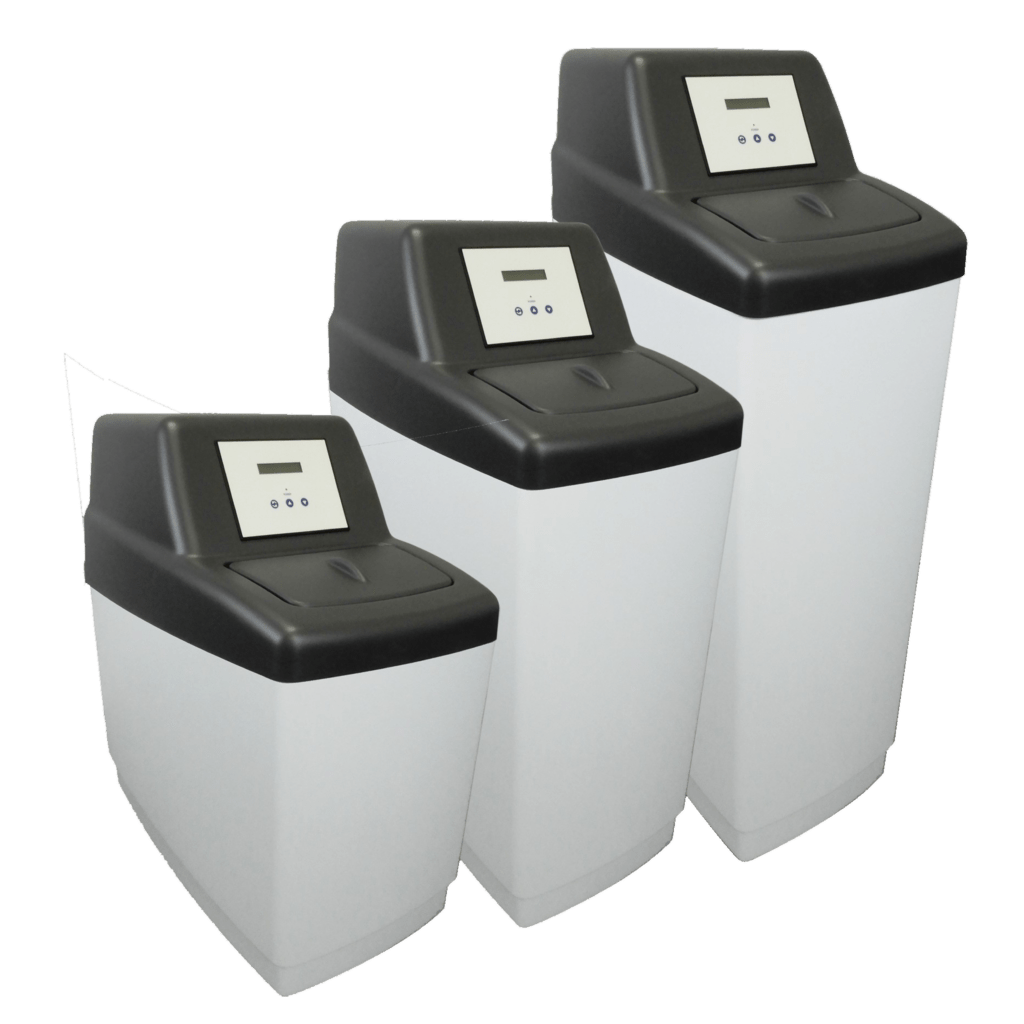
Water softeners - hard for water, soft for you
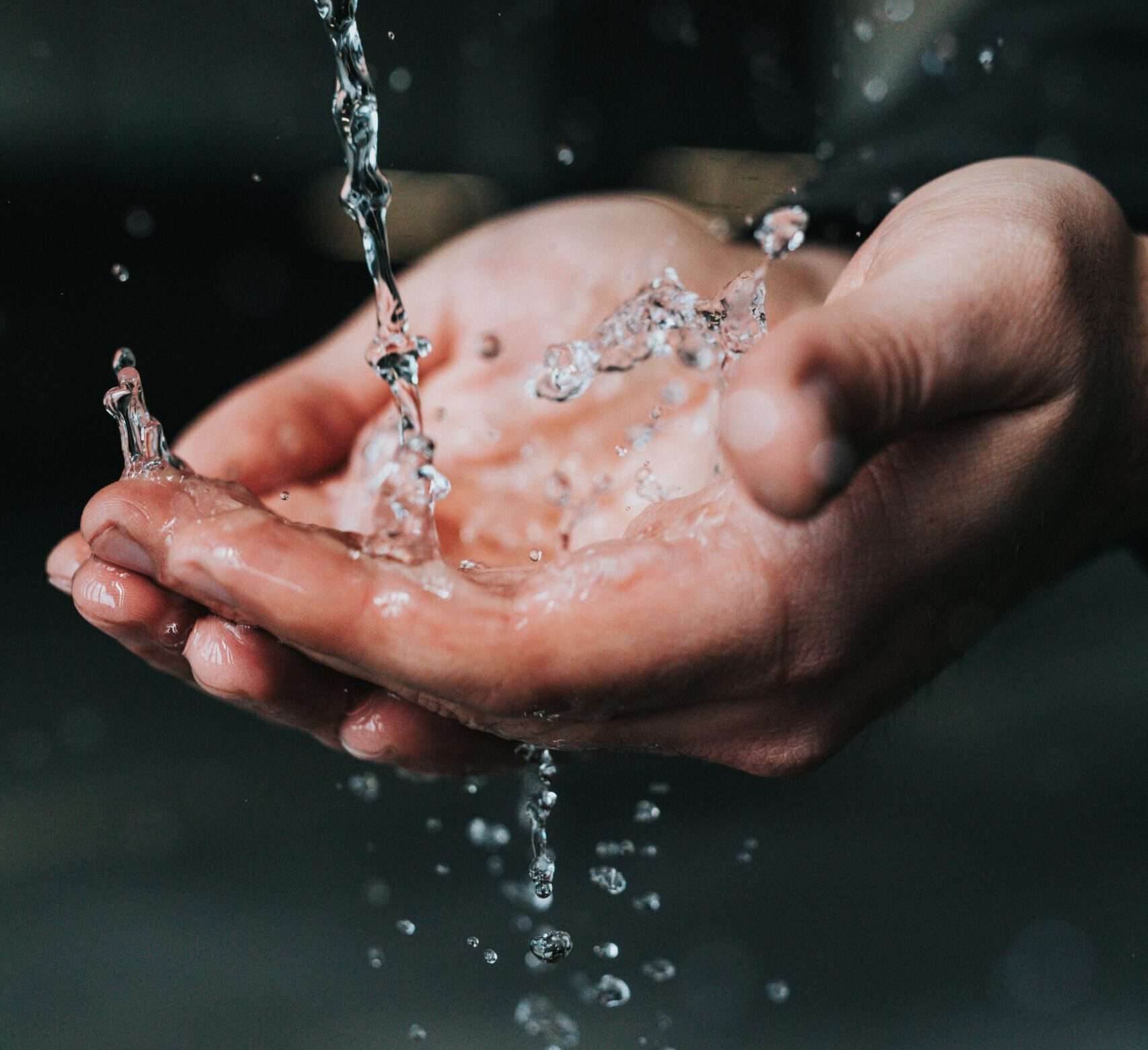
Hard water is a major irritant for many. Lime deposits on your plumbing, white goods or Quooker, shortening the life of your appliances. Hard water also causes energy loss and deterioration of heating elements. Our compact softeners have excellent functionality and their size makes them perfect for households. Which water softener you need depends on your annual water consumption and the local water hardness. Thanks to our diverse range of combi systems and individual systems, we always have a solution for every occasion. Every situation is unique and that is precisely why advice is important to make the right choice and ensure quality. At Peeters Technical Solutions, we analyze each situation individually to provide you with a total solution.
The benefits of a water softener
Optimal water
Fewer detergents needed and clothes stay nice longer
Energy Saving
Energy saving on electric water heaters and heaters
Streak-free clean
Plumbing and white goods get streak-free clean without a gray veil
Softer skin
Noticeably softer skin, softer hair and less soap use
Want to know more?
Our water softeners
Both the HQ-Sentica Home and the
HQ-Sentica Sepa ensure perfect softening of your water.
The control valve ensures a low pressure loss, so you will not have any problems with this.
The materials used are very durable and thus guarantee a long service life.
The mass in the resin filter also remains highly effective in the long run.
The HQ-Sentica home combines the resin cylinder and salt reservoir in one total solution.
This ensures ease of use and easy installation.
In the HQ-Sentica Sepa, the resin cylinder and salt reservoir are separated.
This makes this version very suitable for installation in tight spaces such as the meter box, meter pit or crawl space.
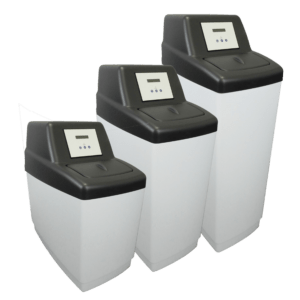
HQ-Sentica Home
- Max. capacity per hour (m³): 2 - 3
- Resin cylinder capacity (ltr): 11 - 32
- Max. salt reservoir capacity (ltr): 50 - 125
- Height (mm): 686 - 1105
- Suitable for number of persons: 2 - 7
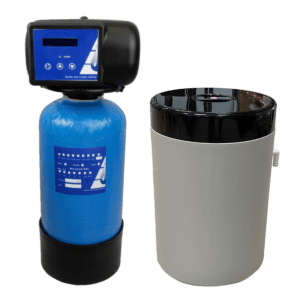
HQ-Sentica Sepa
- Max. capacity per hour (m³): 2 - 2.5
- Resin cylinder capacity (ltr): 7 - 9
- Max. salt reservoir capacity (ltr): 30
- Height (mm): 568
- Suitable for number of persons: 2 - 4
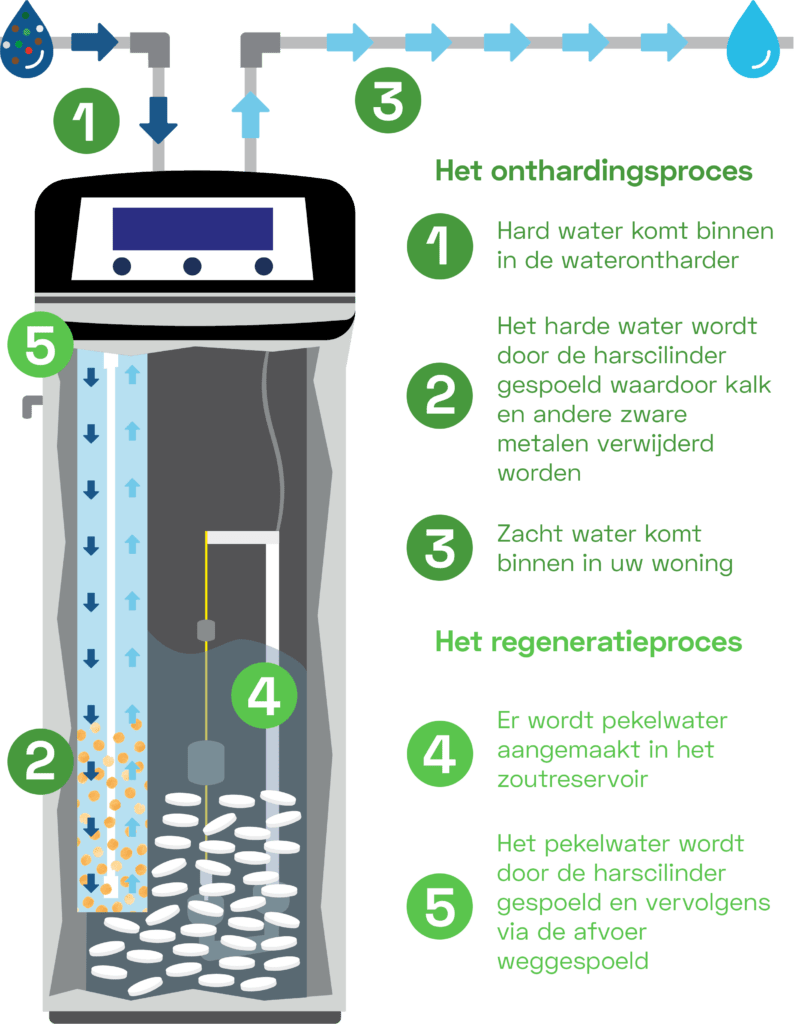
How do our water softeners work?
Our softeners work by ion exchange.
Lime consists of magnesium and calcium.
Inside the softener is a resin cylinder, these balls of synthetic resin are saturated with sodium ions.
When water containing lime flows past the resin, the magnesium and calcium ions are exchanged with sodium ions.
Sodium ions are not harmful to humans or animals.
So the lime is pulled out of the water, resulting in soft water.
After a while, the resin cylinder is saturated with magnesium and calcium ions.
When this is the case, it is time for the automatic regeneration process.
The first step in the regeneration process is to create brine.
The softener is equipped with a salt reservoir.
Water is put into the salt reservoir to create brine water.
When there is enough brine water in the softener, the brine water is flushed through the resin cylinder.
The brine water is flushed away through the drain and therefore does not impart a salty taste to the water flowing through your home.
To ensure this, the softener rinses one more time with clean water to remove the last salt residue.
After regeneration, the softener is again ready to treat hard water.
Still wondering which water softener is right for you?
Please contact us for a free consultation.
We will be happy to help you in your choice.
Frequently Asked Questions
Besides the many benefits such as softer skin, energy savings and easier cleaning, you also save money by using a water softener.
Studies by Aqua Belgica (the Belgian Water Treatment Federation) and the U.S. Batelle Memorial Institute concluded that a family of four can save up to 650 euros a year by installing a water softener.
When water is descaled, other heavy metals are also filtered out of the water.
This gives the water a higher level of acidity.
Acidic water is corrosive and can therefore corrode copper piping.
To prevent this, a residual hardness is set as standard when our water softeners are put into operation.
In this way, the water retains a small (negligible) level of lime, but does not affect the pipework.
When you place a water softener between the water pipes you can take into account a pressure loss of about one bar.
Water comes in at five bar pressure; at four bar pressure, water can still rise up to 40 meters.
When you place a water softener between the water pipes you can take into account a pressure loss of about one bar.
Water comes in at five bar pressure; at four bar pressure, water can still rise up to 40 meters.
No, during regeneration, brine water is created in the salt reservoir.
This brine water does not come into contact with your drinking water.
Therefore, your soft water will not have a salty taste either.
Our systems use about 10% of salt per flush relative to the contents of the resin cylinder.
So for a system with a resin capacity of 11 liters, this means 1.1 kilograms of salt per flush.
How often the reservoir needs refilling depends on the size of the resin cylinder and water usage, but we recommend checking the contents every now and then to see if it needs refilling.
Our softeners are optionally supplied with bypass.
Using this bypass, it is very easy to adjust the water flow.
Simply turn the knobs of the bypass a quarter turn and the water no longer flows through the softener.
No, this is not so bad.
The softener is installed directly behind the water meter in between the water supply by means of two flexible connections (supplied).
All you need is a drain pipe and an electrical outlet.
The drainpipe drains off the salt water after regeneration.
Both systems work with a simple plug-and-play system: after installation, the softener is simply plugged into a wall outlet and is ready to use.
The softening salt must be Foodgrade and contain anti-clumping agents.
Some potential vendors for this are Salt Advantage and Saltman.
Yes, in general, a water softener is environmentally friendly.
One of the advantages of a water softener is that you need less soap and detergent and can wash at less hot temperatures.
In addition, household appliances last longer and heating elements in your water heater or washing machine, for example, are also less likely to calcify.
Because appliances and parts last longer, they are less likely to end up in waste streams.



